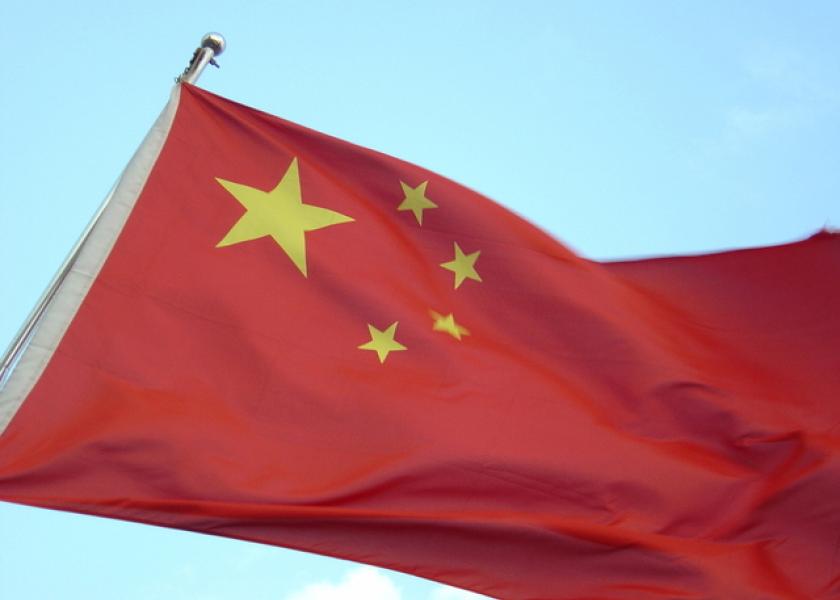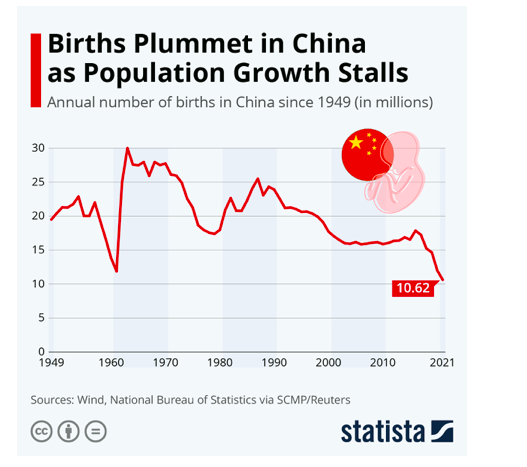China’s Central Bank Cut Rates for First Time in Two Years

On Monday the People’s Bank of China also announced a 0.1 percentage point cut to two of its key policy rates. It acted after GDP grew by more than 8% in 2021, but slowed down in the fourth quarter, with growth of just 4% compared to the same period in 2020.
Also in China, President Xi Jinping said China's “common prosperity” drive is not a pursuit of egalitarianism. The comments came in defense of the policy that rattled markets and China watchers last year. Xi was speaking via video link at the World Economic Forum’s annual meeting being held online this year, rather than at the Swiss resort of Davos.
“The common prosperity we desire is not egalitarianism,” Xi said. “We will first make the pie bigger and then divide it properly through reasonable institutional arrangements. As a rising tide lifts all boats, everyone will get a fair share from development, and development gains will benefit all our people in a more substantial and equitable way.”
China is facing criticism for eroding democratic freedoms in Hong Kong, mistreating the Uyghurs of Xinjiang and posturing expansively in military affairs. In response, Beijing regularly rebukes the U.S. and its allies and partners for interfering with China’s domestic interests.
The Chinese Communist party, pushed by Xi, has been reshaping the country’s business and cultural landscape via a months-long series of crackdowns, targeting industries including fintech, education and entertainment as well as celebrity culture, gaming and effeminate fashion trends. The moves, which have wiped billions of dollars from Chinese and foreign investors, have sparked international debate over the political and economic motives of the policy, and made the future of investing in China uncertain.
Xi tried to ease some concerns, insisting China remained committed to being open to foreign business. “All types of capital are welcome to operate in China, in compliance with laws and regulations, and play a positive role for the development of a country.”
Regarding the global economy, the Chinese president warned of “serious negative spillovers” if “major economies slam on the brakes or take a U-turn in monetary policies” as they deal with accelerating inflation. Developing countries would also “bear the brunt” of the changes. “The global low-inflation environment has notably changed, and the risks of inflation driven by multiple factors are surfacing,” he added.
— China’s central bank cut rates for the first time in two years. On Monday the People’s Bank of China also announced a 0.1 percentage point cut to two of its key policy rates. It acted after GDP grew by more than 8% in 2021, but slowed down in the fourth quarter, with growth of just 4% compared to the same period in 2020. Economists believe Beijing will enact more easing measures in the coming months in a bid to defend what they expect will be a bottom line of 5% economic growth in 2022. The government will formally release its annual growth target in March. Wei Yao, chief China economist at Société Générale, said new easing measures, including attempts to stimulate infrastructure spending and consumption, could come as early as annual legislative meetings set for March.
— China is increasing its testing requirement and mandating that all travelers headed to Beijing receive a Covid-19 test within 72 hours of arrival. The new rule took effect on Sunday and will last through the end of March. The Beijing Olympic Games are set to start on Feb. 4. The previous directive mandated travelers to be tested for the virus within 48 hours of their departure for Beijing. Meanwhile, tickets for the Beijing Winter Olympics Games will not be sold to the public and only selected spectators will be invited to attend on supervised trips, event organizers said on Monday.

— Births plummet in China as population growth stalls. After China's once-in-a-decade census had already corrected the number of births in the country downwards considerably in 2020, the latest release from the National Statistics Bureau of China (NBS) shows that in 2021, even fewer babies were born in the country. The statistic only counted 10.62 million births in 2021, down from twelve million in 2020. Meanwhile, China's population stagnated at around 1.41 billion people. The country's fertility rate stood at 1.3 children per woman in 2020. It has been below the 2.1 threshold necessary for a stable population since the 1990s. Despite the early warning signs, China only scrapped its long-standing one-child policy in 2016, as fear of overpopulation gave way to fear of aging societies. Ning Jizhe, head of the NBS, attributed the falling fertility rate to China's economic and social development. Countries tend to experience lower birth rates in line with economic development as increased education access and concentration on careers become new priorities for the population. That is certainly the case elsewhere in Asia, particularly in Japan and South Korea where birth rates have fallen to new lows. The situation is especially concerning in South Korea where there were more deaths than births last year. (Source: Statista)







